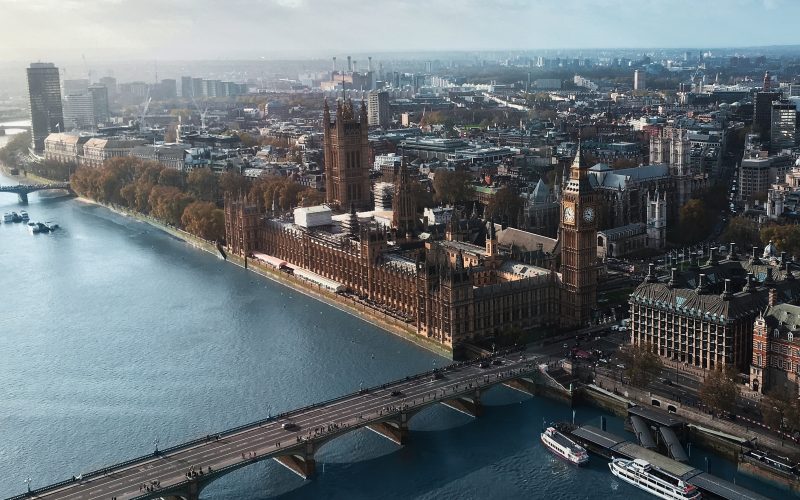When it looked like Jeremy Corbyn would win the Labour leadership election in 2015, pundits and commentators were essentially speechless.
Sure, they could point to the Momentum movement, and a desire by members to try something different. They could easily identify the new leadership election rules and allowing £3 “members” to vote as having a huge and unexpected impact.
But essentially no one knew what to make of him.
I think most people were genuinely shocked when, after the general hilarity that he had actually won, the reality of having John McDonnell as shadow chancellor sunk in.
But still, the prevailing view at the time was that this must be the gift that it seemed to be to the Conservative Party.
And in the short term it was. For all his faults, David Cameron was at ease against Corbyn at the despatch box. It was merely sport to each week point out the attempted coups, the splits and the absurdity that the Labour Party had become.
Dressing improperly, not singing the national anthem and having no idea how to handle the media (Seamus I don’t think this is a good idea…) all fed into a comfortable narrative that Jeremy Corbyn and the new Labour leadership just weren’t credible.
And let’s be clear this is excluding all mentions of the IRA, anti-semitism, and dangerous socialist policies.
But then came the EU referendum and subsequently Theresa May.
JC was virtually silent during the campaign. As was TM. Both I think for different reasons.
JC, a long time advocate of leaving the EU, realised he would alienate his party if he came out in favour of leave.
TM, in one of her more canny political moments, realised that this thing could go both ways, and better not to piss off the leavers in case there was a chance to grab the throne.
She was right. And the staggering fumbling of the Tory Brexiteers ensured she became leader and Prime Minister.
Fast forward one disastrous general election (for the Tories at least) and a failed EU withdrawal negotiation and the politics of the UK couldn’t be more different.
If Jeremy Corbyn and the Labour Party could be accused of being consistent it would be in their inconsistency, in particular with EU policy.
At first it was highlighted as gaff by the media. Hang on, didn’t that shadow minister say the exact opposite of what Corbyn said yesterday?
Wait, Corbyn has now contradicted what he said last week.
And so it continued.
Now after months and months of this, commentators are starting to say that this is Corbyn’s genius. That he is actually a smooth political operator.
6 impossible tests. What a trap he’s laid.
By being all things to all people he has become the every-person leader. A man of all the policies.
Agreeing with everyone and disagreeing with the Tories.
We know he never thought he’d ever get this far. We know it’s McDonnell that we should be really worried about ever coming close to power.
And it doesn’t take a political genius to see that every move they make is about seeking power, at any cost.
But I’m reminded of the Soviet Union in the Cold War, when there was a genuine nuclear arms race between them and the west.
Western intelligence agencies could only find derelict and old missile silos. But how could this be when the rhetoric was that they had the most powerful arsenal in the world?
The intelligence agencies of the day concluded that the Russians were being so clever that they had indeed developed better weapons and the ability to make the other side think they hadn’t.
Ironically this hardened the resolve of America and its allies as they rushed to develop counter technologies to win the arms race.
History showed us that this was essentially unnecessary. The silos and missiles were exactly as they seemed. Dilapidated and under maintained. No match for their opponents.
So is Jeremy Corbyn wearing the Emperors new clothes? Political observers seem to think he has not only tapped into the current zeitgeist but is using his savvy political skills in a way that must be sheer genius.
Who else would come across as so untrustworthy and inconsistent. He must know something we don’t know.
The concern is that they are right. Not because he’s principled and just, but because the electorate will somehow be sucked in.
But I still can’t bring myself to believe that it isn’t anything other than Labour Party incompetence.
The 2017 election was a shock to me, having accurately predicted the previous 4 elections. I trusted the people to make the right decision.
Now I’m not so sure. I want to believe that the voters will, if presented with a Socialist Labour Party, will reject it, and we’ll all go back to saying how politically inept the whole experience was.
But with Theresa May at the helm of an increasingly interventionist Conservative Party, botching Brexit, with no credible free market, Liberal alternative in sight, I fear voters will waver, as I am, as to whether to vote at all.
And if voters become non-voters, then this absurdity, no matter how intentional, may yet be proved successful.




